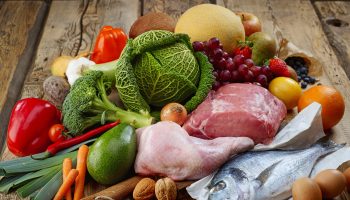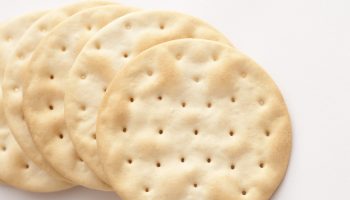Lose weight while eating steak, burgers, cheese, and bacon? High-protein, low-carb plans like Atkins and the Zone can work. But you should consider the pros and cons before you decide to try one.
Contents
How Much Protein?
Women need at least 50 grams of protein a day — men about 60 grams per day. With a high-protein diet, it can be much more than that. This extra protein can come from beans, meat, nuts, grains, eggs, seafood, cheese or vegetarian sources like soy. These diets often restrict carbs like cereals, grains, fruits, and possibly vegetables.
How Do High-Protein Diets Work?
When you cut out carbohydrates, you lose weight quickly because you lose water. Then, with no extra carbs, the body begins burning more fat for fuel. This can lead to ketosis, which may make losing weight easier because you feel less hungry. Ketosis may cause temporary headaches, irritability, and nausea but appears to be safe long-term.
The Best Protein Sources
Choose protein sources that are nutrient-rich and lower in saturated fat and calories, such as:
- Lean meats
- Seafood
- Beans
- Soy
- Low-fat dairy
- Eggs
- Nuts and seeds
It’s a good idea to change up your protein foods. For instance, you could have salmon or other fish that’s rich in omega-3s, beans or lentils that give you fiber as well as protein, walnuts on your salad, or almonds on your oatmeal.
How much protein are you getting? Here’s how many grams of protein are in these foods:
1/2 cup low-fat cottage cheese: 10-14g
3 ounces tofu, firm: 7-13g
1/2 cup cooked lentils: 9g
2 tablespoons natural-style peanut butter or almond butter: 6-8g
3 oz skinless chicken breast: 25g
3 oz fish fillet (depending on type of fish): 17-20g
1 ounce cheese: 7g
Health Benefits of Eating Foods with Protein
Boost Muscle Mass
Eating enough protein is necessary to build and maintain healthy muscle mass, while also supporting tendon, ligaments and other body tissue. When your diet is lacking in amino acids, “muscle wasting” (or muscle atrophy) can take place when your muscle fibers are broken down to support your body’s energy needs.
Protein is especially important after exercise, since physical activity like strength training purposefully damages muscle tissues so they can repair and grow back stronger. For the process to happen effectively, you need some extra protein to help repair the damage. While protein alone won’t enhance athletic performance, research shows that eating protein before and after exercise helps increase muscle recovery, promotes muscle synthesis and serves as effective muscle ache treatment.
Help Manage Your Weight by Filling You Up
Although some research studies show conflicting results regarding high-protein diets versus low-protein diets for maintaining an ideal weight or losing weight fast, there’s plenty evidence that protein helps make you feel full and can prevent overeating. While dietary or lifestyle change must be personalized for weight loss to be effective, studies show that controlled calorie intake in association with a moderately high protein intake can be an effective and practical weight-loss strategy.
Some of the reasons this is true? High-protein foods cause increased satiety to a greater extent than carbohydrates or fats, so they can prevent overeating and snacking. It’s usually much easier to overeat carbohydrates, especially if they’re refined or sweetened, than it is to overeat healthy protein foods. Eating protein also creates a process in the body known as thermogenesis, which requires the body to expend more energy (calories) in order to digest food. At the same time, protein helps ward off muscle loss that can result from a low-calorie diet, which makes certain proteins superfoods for weight loss.
Stabilize Blood Sugar Levels
Insulin is a hormone that’s required for carbohydrates, fat and protein to be metabolized. However, carbohydrates require much more insulin than fat or protein does. The major determinate of blood sugar levels is the glycemic index response from the foods you eat, so while eating high-carb and high-sugar foods results in fluctuations in blood sugar levels, eating protein does the opposite.
Eating foods with protein has a minimal effect on blood glucose levels and can, in fact, slow down the absorption of sugar during a meal. This means a high-protein diet can help prevent spikes in blood glucose, which is especially important for preventing type 2 diabetes, balancing energy levels, and keeping your appetite and mood in check.
Improve Your Mood
Certain amino acids from protein foods are needed to balance hormones naturally, control your mood and act as a natural remedy for anxiety. Proteins help neurotransmitters function and synthesize hormones like dopamine and serotonin that calm us and keep our outlook positive.
Many people who are lacking in key amino acids start experiencing weakness, moodiness, and increased anxiety or signs of depression for this reason. Because protein helps stabilize glucose in your blood, it also prevents mood changes, irritability and cravings that can occur due to fluctuating blood sugar levels.
Promote Healthy Brain Function and Learning
Proteins are needed to make enzymes, hormones and neurotransmitters that are critical for cognitive function. As your mother may have told you when you were a kid, eating a healthy breakfast sets the tone for the day and prepares you to learn and remember information.
The brain requires a steady supply of amino acids in order to keep concentration, focus and energy levels up. Studies show that when amino acid deprivation takes place, learning and coordination suffers, but once all necessary amino acids are reintroduced into the diet, learning and motor skills improve.
Help Maintain Strong Bones
Many studies now show that a positive association exists between eating more foods with protein and better bone health. (20) The effects of protein on bones also relate to the specific protein foods being eaten and intake of important bone-building nutrients like calcium and magnesium. A diet high in protein from whole, nutrient-rich foods can heal broken bones and prevent bone weakness, fractures and even osteoporosis by increasing calcium absorption and helping with bone metabolism.
Recent studies in the elderly in the U.S. show that the greatest bone losses occur in people with low protein intake of 16–50 grams per day. It’s believed that when someone eats a low level of protein, insulin-like growth factor production is reduced, which in turn has a negative effect on calcium and phosphate metabolism in the bones and bone formation.
Protect Heart Health
Some studies show that an inverse relationship between protein intake and risk of heart disease has been observed in adults, as higher protein diets appear to one of the natural remedies for high blood pressure. Also, substituting carbohydrate foods with protein results in lower LDL “bad” cholesterol and triglyceride levels. One reason this might be true is because higher protein diets balance blood sugar and tend to help prevent other heart disease-related causes, including obesity and diabetes.
Slow Aging and Promote Longevity
One of the key roles of protein foods is helping the body synthesize glutathione, often called the “master antioxidant.” Glutathione is stored within our own cells and helps us detox and reduce carcinogens that age us. Animal and human studies both show that adequate protein intake is crucial for the maintenance of glutathione and helps the body stay in a state of balanced “homeostasis.” Glutathione deficiency contributes to oxidative stress, which plays a key role in age-related diseases like Alzheimer’s disease, Parkinson’s disease, liver disease, cystic fibrosis, sickle cell anemia, cancer and viral infections.
Research shows that a diet high in balanced amino acids from protein foods can help treat muscle loss due to aging (called sarcopenia). A diet that has adequate levels of protein helps slow the aging process by keeping muscle mass intact, supporting strong bones, and maintaining high cognitive and immune function. In the elderly, amino acid deficiencies can potentially lead to eye problems like cataracts, heart problems, muscle loss, weakness and mood changes.
As you age, your body is less capable of synthesizing amino acids on its own, which is one reason why the amount of muscle you have tends to decrease over the years while fat accumulates. This makes it even more important for you to eat plenty of protein-rich foods to support not only a healthy body weight, but to keep your memory sharp, energy up, and strength and balance in place.






